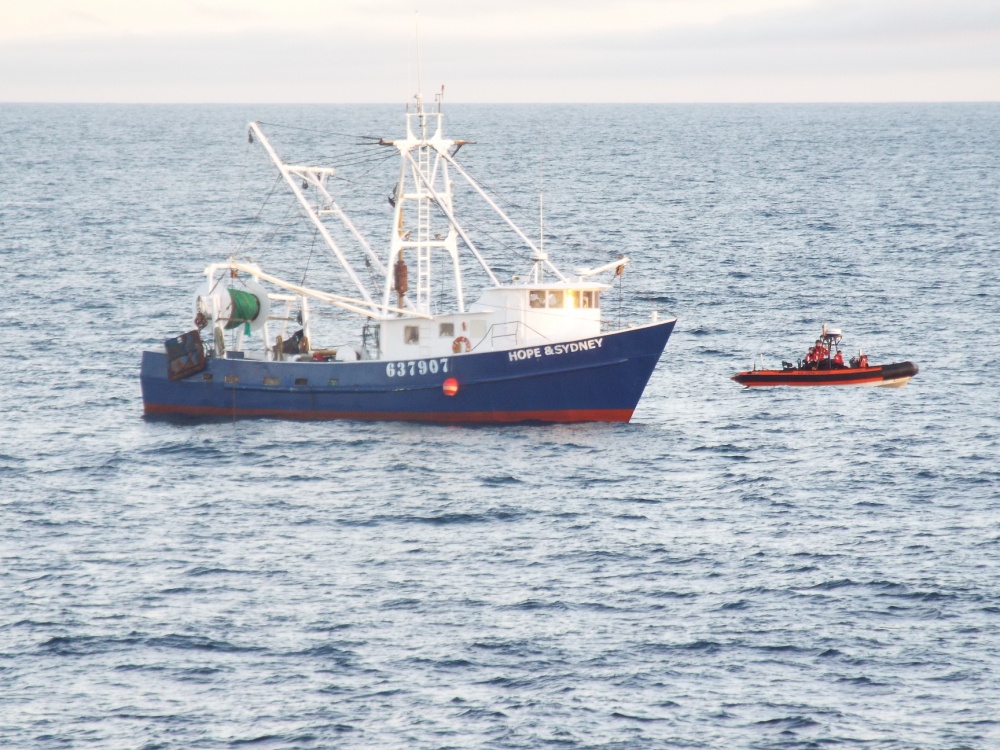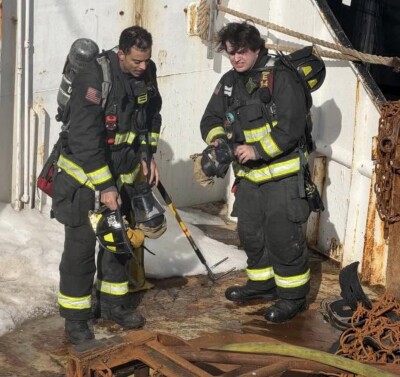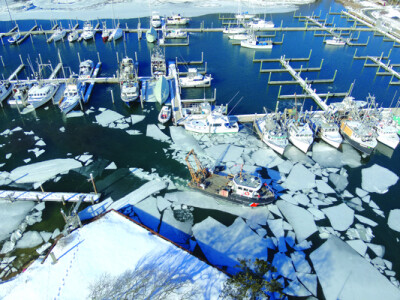A 608-square mile search failed to find a Rhode Island fisherman who fell overboard 16 miles south of Montauk Point, N.Y., Saturday night, Coast Guard officials said.
Watchstanders at Coast Guard Sector Long Island Sound received a distress call at 11:20 p.m. from the Point Judith, R.I.-based vessel Hope & Sydney, reporting that crewman Carl Whitney, 32, had gone overboard. Whitney had been seen wearing an orange t-shirt, jeans and carrying a green duffle bag. He was not wearing a personal flotation device, according to the Coast Guard.
A search was mounted with a 47-foot motor lifeboat crew from Montauk, the cutters Vigorous and Kingfisher, and an MH-60 Jayhawk helicopter and HC-135 Ocean Sentry long-range search aircraft from the Coast Guard air station on Cape Cod. The search was suspended Sunday afternoon.
The case showed the need for personal flotation devices for commercial fishermen and recreational boaters, said Capt. Eva Van Camp, commander of the Coast Guard Long Island Sound sector.
The Commercial Fisheries Center of Rhode Island is trying to organize assistance for Whitney’s family, said Fred Mattera, the center’s executive director.
A fisherman for 40 years, Mattera conducts safety training classes for fishermen, and remembered Whitney from one of those sessions.
“I really try to make them remember we’re doing these drills so we can work together as a team,” said Mattera. “He was good, he asked questions, he jumped in and did it.”
Overboard accidents are a leading cause of death in the fishing industry, persistently high at 36 percent to 39 percent as tallied over the years by the National Institute for Occupational Safety and Health.
There are numerous factors at play, said Mattera, who is also an East Coast director for the Alaska Marine Safety Education Association.
In New England the lobster fishery, with its dangers of trap line entanglement, single-fisherman crews and cold water, poses high risk. In the Gulf of Mexico, it’s “short gunwales, fishing at night, slippery decks” that raise the danger, said Mattera.
The challenge is getting fishermen to accept personal flotation devices, or PFDs, even though modern technology has made them much easier to wear without restricting the mobility needed to work, said Mattera.
“I fished for 40 years and went a lot of years without it,” he said. Since 2018 one effort to raise awareness and get fishermen to buy discounted personal flotation devices got 1,100 of them to buy-in from ports in Massachusetts and Maine, said Mattera.
It takes some persuasion and persistence to get that kind of acceptance. Mattera recalled another effort that he and fellow fisherman Rodney Avila mounted years ago with a local news program about the need for crews to buy and carry survival suits and related equipment.
“We realized the people calling in were grandmothers, mothers, aunts, sisters,” he said. “They were all female. We realized that to get these messages out there, you have to get the wives, the families.”







